Jennifer Scoullar's Blog, page 8
October 18, 2015
The Vulnerable Writer
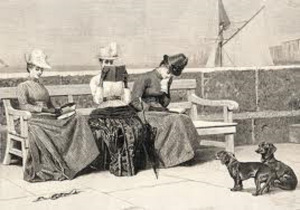 It’s that time of the month for general writerly chit-chat with author and writing teacher Sydney Smith. This week we’re talking about the importance of vulnerability.
It’s that time of the month for general writerly chit-chat with author and writing teacher Sydney Smith. This week we’re talking about the importance of vulnerability.
SYDNEY –
One of the creative writing forms I teach is memoir, sometimes called life writing. The commonest issue writers of memoir face is vulnerability. They fear exposing themselves to the reader. It’s common for these writers to fictionalise their life story, or use the third person, in order to shield themselves. A writer once asked me if her memoir was still a memoir if she wrote in the third person. I said no, which angered her. I dealt with her wrongly, thus driving her deeper into her own self-protectiveness. What I should have done was tell her the story of my own struggle to overcome my fear of self-exposure. So, although I have lost that opportunity, I will tell the story here.
Back in 2004, I developed an eye condition that made it hard for me to do everyday things like read the newspaper and walk safely down a flight of stairs. One of the curious things about my eye condition is that I sometimes see objects that aren’t there: flowers, feathers, scraps of paper that might be folded notes. I want to write a story about a woman who sees things that aren’t there―it’s such an odd and magical experience.
 It’s normal when you lose some part of your body or one of the senses that you enter a mourning period. During this period you give up hoping for the return of the lost sense or lost limb, and you adjust to a new way of relating to the world and yourself. I examined the way I was living my life and realised I was stuck in a rut. I had to think about what I really wanted from life and how I should go about getting it. In a really meaningful way, my eye condition was the best thing that could have happened to me. It catapulted me into a situation where I was forced to change the way I conducted my life. Some of these changes came about through conscious decision. Some were involuntary, and these have been the most potent agents of change.
It’s normal when you lose some part of your body or one of the senses that you enter a mourning period. During this period you give up hoping for the return of the lost sense or lost limb, and you adjust to a new way of relating to the world and yourself. I examined the way I was living my life and realised I was stuck in a rut. I had to think about what I really wanted from life and how I should go about getting it. In a really meaningful way, my eye condition was the best thing that could have happened to me. It catapulted me into a situation where I was forced to change the way I conducted my life. Some of these changes came about through conscious decision. Some were involuntary, and these have been the most potent agents of change.
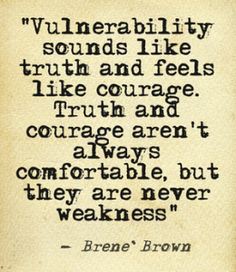 As I came out of my mourning period, I was seized by a need to write about my relationship with my mother. It had been difficult; my mother had a mental illness and suffered from psychotic episodes. For years I had avoided writing about her, either directly or in disguised forms. My protagonists are notably lacking a mother. Again and again I write about women who either have a father only, or no parents at all. So the idea of writing about myself and my mother was a struggle. The first part of the struggle was learning how to write memoir when I only knew how to write fiction and journalism. That was tough enough. But still tougher was my struggle to write about her and myself in a true and honest way, stripped of justifications and defensiveness, self-aggrandisement and blame. I had to be vulnerable and that was frightening.
As I came out of my mourning period, I was seized by a need to write about my relationship with my mother. It had been difficult; my mother had a mental illness and suffered from psychotic episodes. For years I had avoided writing about her, either directly or in disguised forms. My protagonists are notably lacking a mother. Again and again I write about women who either have a father only, or no parents at all. So the idea of writing about myself and my mother was a struggle. The first part of the struggle was learning how to write memoir when I only knew how to write fiction and journalism. That was tough enough. But still tougher was my struggle to write about her and myself in a true and honest way, stripped of justifications and defensiveness, self-aggrandisement and blame. I had to be vulnerable and that was frightening.
This fear took the form of a prohibition – thou shalt not write about they mother! Behind that hung another prohibition – thou shalt not write about thyself! Every time I sat down to write a short memoir about her, I would stare at a blank document page for about half an hour, type a little, erase it, type again, erase it, and finally close the document and do something else.
 Then I figured a way around the prohibition. I was addicted to a reality TV show called Wife Swap USA, in which two couples swapped partners. There was always a crazy mother in there. The show could more accurately have been called Mad Mothers USA. I used to watch this show and see my own mother in these mad women. So I wrote an essay about it. First I analysed an episode, then I took a reality TV camera into my home when I was sixteen and let it roam around, recording what went on there. By starting with the show and moving into memoir, I had sneaked up on my mother―and it was liberating! Even better (because we writers need proof that we’ve done a good job) Griffith REVIEW published it. Before long, I didn’t have to sneak up on her anymore. I could write about her directly, and a few years after that, my book-length memoir, The Lost Woman, was published.
Then I figured a way around the prohibition. I was addicted to a reality TV show called Wife Swap USA, in which two couples swapped partners. There was always a crazy mother in there. The show could more accurately have been called Mad Mothers USA. I used to watch this show and see my own mother in these mad women. So I wrote an essay about it. First I analysed an episode, then I took a reality TV camera into my home when I was sixteen and let it roam around, recording what went on there. By starting with the show and moving into memoir, I had sneaked up on my mother―and it was liberating! Even better (because we writers need proof that we’ve done a good job) Griffith REVIEW published it. Before long, I didn’t have to sneak up on her anymore. I could write about her directly, and a few years after that, my book-length memoir, The Lost Woman, was published.
I had got over the fear of exposing myself, of being vulnerable in front of strangers. But something curious had happened. I’m a fiction writer and had struggled to get close to my characters. Since I struggled with that, so did my readers. Insuperable barriers separated me from my characters, and my characters from my readers. But once I had overcome my fear of being vulnerable, I found myself no longer fearing to expose my characters. By overcoming my fear, I had made myself, quite by chance, a better storyteller and a better writer.
JENNY –
That’s a fabulous story, Sydney, and I can highly recommend The Lost Woman.
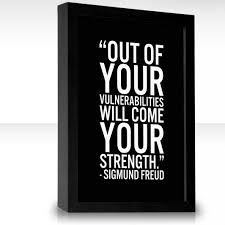 Not being a writer of memoir, I don’t have quite the same problem. Also, I’m the sort of person who can’t help wearing my heart on my sleeve. This causes complications in the real world, but is a gift to a novelist. Because as you say, it isn’t just memoirists who are afraid to expose themselves. Writers of fiction can be equally tempted to protect their innermost selves, writing half-truths, and shying away from things that matter the most to them.They fear being shamed, or embarrassed, or judged.
Not being a writer of memoir, I don’t have quite the same problem. Also, I’m the sort of person who can’t help wearing my heart on my sleeve. This causes complications in the real world, but is a gift to a novelist. Because as you say, it isn’t just memoirists who are afraid to expose themselves. Writers of fiction can be equally tempted to protect their innermost selves, writing half-truths, and shying away from things that matter the most to them.They fear being shamed, or embarrassed, or judged.
How much of yourself are you prepared to put on the page? If you truly want to write great fiction, you have to be willing to go deep. It takes courage to do this. Otherwise, what matters most passionately to you will remain hidden from your readers. The words will lack soul. This is difficult, because we’re all programmed not to expose ourselves. We have psychological defence tools to protect ourselves from pain and raw emotions. Some writers even protect their characters, and are afraid to make them vulnerable. But if we write like this, we will pussyfoot around the heart of our story and have no real impact on the reader. Ernest Hemingway understood this when he said, ‘There is nothing to writing. All you do is sit down at the typewriter and bleed.’
What are you scared to write? Maybe that’s exactly what you should be doing. When I think of my favourite books, they all pack a raw, emotional punch.

October 11, 2015
The Problem Of Coincidence
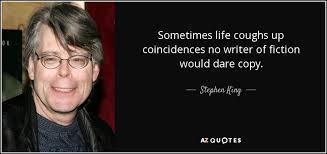 I’ve submitted my new manuscript, and am busy brainstorming new story ideas. Some have potential, and some don’t. One didn’t fly because it depended on a coincidence. Truth is indeed stranger than fiction, and coincidences seem to happen all the time in real life. Some people don’t believe anything occurs by chance. They put coincidence down to some sort of cosmic plan – synchronicity. Paths always cross for reasons that are more important than you think. I quite like this theory, it resonates with me.
I’ve submitted my new manuscript, and am busy brainstorming new story ideas. Some have potential, and some don’t. One didn’t fly because it depended on a coincidence. Truth is indeed stranger than fiction, and coincidences seem to happen all the time in real life. Some people don’t believe anything occurs by chance. They put coincidence down to some sort of cosmic plan – synchronicity. Paths always cross for reasons that are more important than you think. I quite like this theory, it resonates with me.
However there’s one thing I’m absolutely convinced about – coincidences don’t work in fiction. They’re the quickest way to ruin the suspension of disbelief that all authors rely on in their readers. They’re a bit (dare I say it) like Doctor Who‘s magical sonic screwdriver – all a bit too convenient. For your information, if you’re not a mad Doctor Who fan, some functions of the sonic screwdriver are as follows:
 To pick locks
To pick locksBurn and cut all kinds of substances
Amplify sound-waves and the power of an X-ray machine beyond its normal capacity
Disarm weapons and electronic
Intercept and conduct teleportation
Act as a microphone
Conduct medical scans
Remotely control the Tardis and other devices
Track alien life forms
Control the properties of atoms
Operate computers
Provide Geo-location
Get cash from an ATM
Light candles
Act as a mobile phone
Disclose and deactivate camouflage
Destroy Weeping Angels
Disarm robots
Scan and classify matter
Create an “acoustic corridor” for speaking with someone far away
Act as a defensive weapon
And last but not least, to tighten and loosen screws
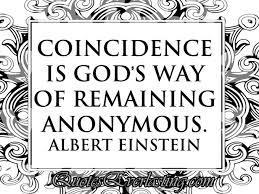 You see, I think that’s cheating. Along with allies or enemies appearing at just the right moment, un-foreshadowed random secrets and questionably handy skiIls possessed by the hero. Coincidences fall into the category of lazy writing – a sure sign of poor plotting. Readers roll their eyes. It’s alright to use them to get characters into trouble, but not out. Of course, it’s not a coincidence if it’s adequately foreshadowed. If a convenient character needs to appear, mention him earlier. If your hero can speak Latin, show him learning it, and for a plausible reason. This will keep the magic of pretence alive.
You see, I think that’s cheating. Along with allies or enemies appearing at just the right moment, un-foreshadowed random secrets and questionably handy skiIls possessed by the hero. Coincidences fall into the category of lazy writing – a sure sign of poor plotting. Readers roll their eyes. It’s alright to use them to get characters into trouble, but not out. Of course, it’s not a coincidence if it’s adequately foreshadowed. If a convenient character needs to appear, mention him earlier. If your hero can speak Latin, show him learning it, and for a plausible reason. This will keep the magic of pretence alive.
Congratulations to Carol Warner for winning the prize in last week’s draw. A copy of Turtle Reef and Billabong Bend will be heading your way soon! I’ll email you for your postal address.

September 26, 2015
Almost There + Book Giveaway
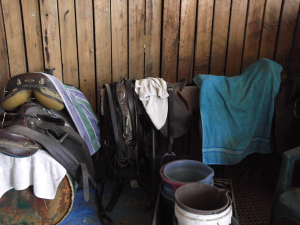
These Saddles Will Soon Get A Workout!
I’m putting the finishing touches on my new manuscript, which is due at Penguin on Thursday. This has been the hardest, but also the most satisfying book that I’ve written so far, with a broader focus than my previous novels. From Afghanistan’s last wilderness, to Australia’s great eastern escarpment, an epic tale of love, loss and redemption.Writing it has been an emotional roller coaster, and more than once I’ve found myself in tears.

Waratahs
So, you can imagine how pleased I’ll be to send it off, and turn my attention to things closer to home – like the beauty unfolding all around me. Spring is my favourite time of year, and I’ll finally have a chance to enjoy it! This post is dedicated to Pilyara, the beautiful property where I live, and the animals and plants that I share it with.
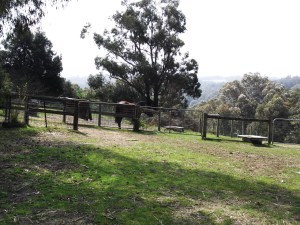 Pilyara has many forested areas, with spectacular grey gums, mountain ash, and messmate stringy bark trees towering overhead. Below grows a dense layer of smaller plants including correa, heath, dusty miller, and golden bush pea. Delicate ground orchids abound, and ferns fringe the creek, including tall tree ferns. An astounding range of birds are found here: honey-eaters, bower-birds, parrots, cockatoos, kookaburras, currawongs, whip-birds, willy-wagtails, magpies, herons, swallows, swifts, ducks, eagles and owls, just to name a few. We’ve even spotted a lyrebird once or twice.Native animals include wombats, wallabies, koalas, echidnas, kangaroos, possums, gliders,bush rats, antechinus,bats and platypus in the creek. We also have the odd goanna and snake.
Pilyara has many forested areas, with spectacular grey gums, mountain ash, and messmate stringy bark trees towering overhead. Below grows a dense layer of smaller plants including correa, heath, dusty miller, and golden bush pea. Delicate ground orchids abound, and ferns fringe the creek, including tall tree ferns. An astounding range of birds are found here: honey-eaters, bower-birds, parrots, cockatoos, kookaburras, currawongs, whip-birds, willy-wagtails, magpies, herons, swallows, swifts, ducks, eagles and owls, just to name a few. We’ve even spotted a lyrebird once or twice.Native animals include wombats, wallabies, koalas, echidnas, kangaroos, possums, gliders,bush rats, antechinus,bats and platypus in the creek. We also have the odd goanna and snake.

Native Mint Bush
We received a grant from Victoria’s Healthy Waterways program, to finish fencing off the gullies and creek, and the work is almost complete. This will further enhance Pilyara as a habitat for native flora and fauna. Just talking about it makes me want to head off down to the creek! But no, first things first. Only a few more days work on the manuscript, and then the farrier comes to shoe the horses. (My present to myself for finishing!) Pilyara is only a few minutes ride from the Bunyip state forest, with its stunning scenery and heritage horse trails. Here are some photos taken today. Roll on Thursday!
I’m giving away a two-pack of my books. Leave a comment telling me your favourite native bird, or your favourite first line of a novel, to go in the draw. Let me know which two books you’d like. Closing date next Sunday 4th October. (Aust & NZ only)

Crabapple
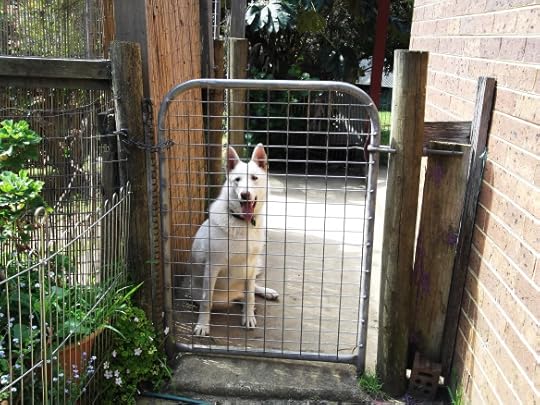
Rex
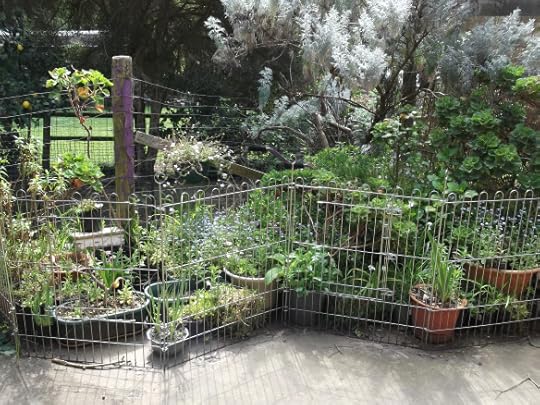
Kitchen Garden
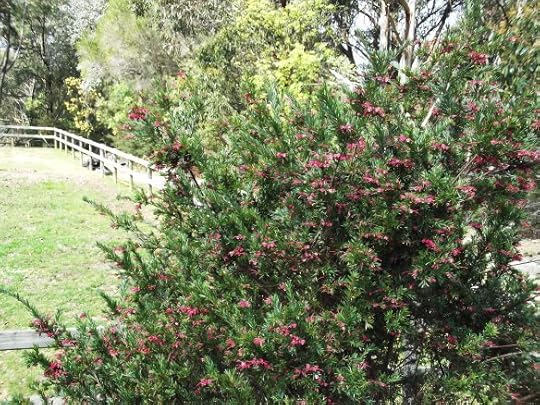
Grevillia
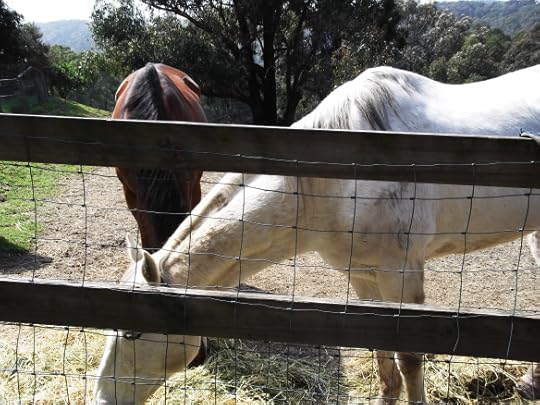
Sheba and Star

September 19, 2015
Hook The Reader With Your First Sentence + Giveaway!
 It’s that time of the month for general writerly chit-chat with Sydney Smith. This week there’s also a giveaway, to celebrate the completion of my new manuscript.
It’s that time of the month for general writerly chit-chat with Sydney Smith. This week there’s also a giveaway, to celebrate the completion of my new manuscript.
JENNY-
Hurray, I’ve finished my latest novel! One hundred thousand words of carefully crafted narrative. From Afghanistan’s last wilderness, to the rugged ranges of Australia’s great eastern escarpment – an epic tale of love, loss and redemption. Writing it was like running an emotional marathon.
I was feeling pretty pleased with myself. But when I began my rewrites – horror of horrors! A boring first paragraph stared me in the face. I needed to fix it, and fast. The manuscript is due at my publisher in two weeks. How do I hook my reader with that first line? Sydney Smith and I were down at Phillip Island on a writing retreat. We began a game – take a random novel off the shelf, read the first line, and rate it out of ten.
SYDNEY-
And what an eye-opener it was! So many of them started with a reference to the weather. About sixty percent, don’t you think, Jenny? Descriptions of weather aren’t in themselves bad. If they strike a note of tension, they can be very good. A storm can be great if it opens, say, a haunted house story or a tale of pursuit and capture. But if the weather is there simply because the writer can’t think of a better way to open their novel, it’s Dullsville. Here are two examples:
-‘The day is hot, the air thick with the smells of the rain-forest.’ The Inevitability Of Stars, Kathryn R Lyster
– ‘He could hear nothing while the storm lasted, everything blotted out by the steady drumming of the rain on the iron roof.’ Papio, Victor Kelleher
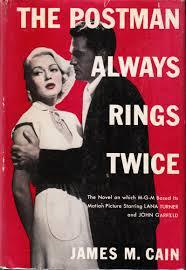 Then there were the openings that drop you right into the action through a piece of dialogue or movement.
Then there were the openings that drop you right into the action through a piece of dialogue or movement.
– ‘They threw me off the hay truck about noon.’ The Postman Always Rings Twice, James M. Cain
– ‘We should head to a bar and celebrate.’ Bared To You, Sylvia Day
– ‘The manhunt extended across more than one hundred light years and eight centuries.‘ A Deepness In The Sky Vernor Vinge.
I know many readers like this. I never have. But, as my friends are at pains to tell me, I’m weird. You can’t go by what I like.
Then there are the opening sentences that were just plain dull for no particular reason. I opened Sylvester, one of my favourite Georgette Heyer novels, and there before me lay a sentence utterly devoid of thrill:
‘Sylvester stood in the window of his breakfast-parlour, leaning his hands on the ledge, and gazing out upon a fair prospect.’
I forgive her because her novels were amongst my early teachers. If I have any skill at all as a writer, it’s thanks to her. I learned wit from her. I learned the long and vivid character introduction from her. I learned the thrust and parry of dialogue between hero and heroine from her. And let us praise the heroine who can take care of herself. That’s not Ms Heyer’s invention, but she ran with it as no one had 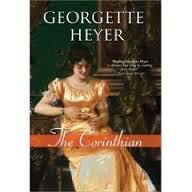 before. So I tried another Georgette Heyer, this one The Corinthian.
before. So I tried another Georgette Heyer, this one The Corinthian.
‘The company, ushered by a disapproving butler into the yellow saloon of Sir Richard Wyndham’s house in St James’ Square, comprised two ladies and one reluctant gentleman.’
Better. The disapproving butler, and especially the one reluctant gentleman, strike notes of tension. The reader is invited to wonder why they’re there, and why the gentleman is reluctant. But it’s too long thanks to the nonsense about Richard’s posh address. Still, it’s a well-balanced sentence. Ms Heyer was a prose stylist of the first order.
But when I look at first sentences, I want something more. I want a sentence that snags me on a strong yet delicate hook with a barb on the end that hurts if I try to wriggle free.
JENNY-
I’ve listed my favourites below. Some encapsulate the conflict, compacting the 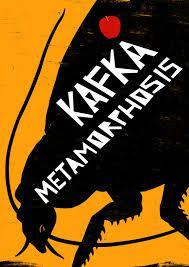 entire story into a single sentence. Others state a truth or surprise me in some way.
entire story into a single sentence. Others state a truth or surprise me in some way.
“Lolita, light of my life, fire of my loins.” Lolita, Vladimir Nabokov
“The man in black fled across the desert, and the gunslinger followed.” The Dark Tower, Stephen King
“As Gregor Samsa awoke one morning from uneasy dreams he found himself transformed in his bed into a monstrous vermin.” Metamorphosis, Franz Kafka
“Happy families are all alike; every unhappy family is unhappy in its own way.” Anna Karenina, Leo Tolstoy
“He shouldn’t have come back.” Dark Country, Bronwyn Parry
“When Mary Lennox was sent to Misselthwaite Manor to live with her uncle, everybody said she was the most disagreeable child ever seen.” The Secret Garden, Frances Hodgson Burnett
“It is said that in death, all things become clear; Ensei Tankado now knew it was true.” Digital Fortress, Dan Brown
“The idea that love is not enough, is a particularly painful one.” The Unknown Terrorist, Richard Flanagan.
“Every summer, Lin Kong returned to Goose Village to divorce his wife.” Waiting: A novel, Ha Jin
“Bett-Bett must have been a Princess, for she was a King’s niece, and if that does not make a princess of anyone, it ought to do so!” The Little Black Princess, Aeneus Gunn
“So I’m standing at my front gate and I’m soaked and it’d been the worst day in history.” Rough Diamond, Kathryn Ledson
“I see my father with that shovel.” The Woods, Harlan Coben
“This was the way a world died.” Ice Guard Steve Lyons
And my personal favourite: “All stories are about wolves.” The Blind Assassin Margaret Atwood
Stephen King proudly boasts that he spends months crafting a first line. What do you think, Sydney? What is it about these lines that made them stand out?
SYDNEY-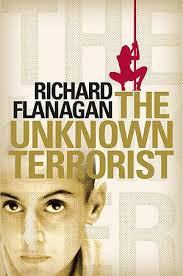 I go with most of your choices, Jenny. I have to say, though, that Richard Flanagan’s contribution strikes me as weak, thanks to its construction and verb choice. “The idea that love is not enough, is a particularly painful one.” It might read better if it went something like this: “It hurts to know that love is not enough.” The construction here is stronger first because of the verb: in his version, he uses “is”, which is a nothing verb, while mine is “hurts”, which throbs with vitality. The position of the verb matters, too: mine is the second word in the sentence, which is a strong place to put it, right after the subject pronoun. His verb is buried in the middle of the sentence. Verbs are engines: they drive sentences. The stronger the verb, the stronger the drive. The fact that his version uses “is” twice merely compounds the problem.
I go with most of your choices, Jenny. I have to say, though, that Richard Flanagan’s contribution strikes me as weak, thanks to its construction and verb choice. “The idea that love is not enough, is a particularly painful one.” It might read better if it went something like this: “It hurts to know that love is not enough.” The construction here is stronger first because of the verb: in his version, he uses “is”, which is a nothing verb, while mine is “hurts”, which throbs with vitality. The position of the verb matters, too: mine is the second word in the sentence, which is a strong place to put it, right after the subject pronoun. His verb is buried in the middle of the sentence. Verbs are engines: they drive sentences. The stronger the verb, the stronger the drive. The fact that his version uses “is” twice merely compounds the problem.
Stephen King’s contribution is good: “The man in black fled across the desert, and the gunslinger followed.” First, it’s about pursuit. Predators pursue their prey. At the same time, the moral ambiguity threatens to tumble it on its head: the prey wears black, the colour of villainy. Does the gunslinger pursue him because he’s done something evil? A two-hook sentence, the moral and the visceral, is an embarrassment of riches. Maybe I should read this novel!
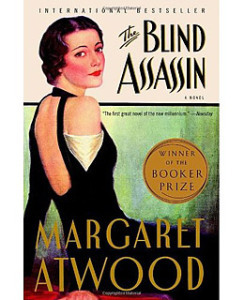 As for Margaret Atwood’s selection, “All stories are about wolves”, the initial hook is the sheer mind-blowing breadth of the statement. That very fact caused me to pause and ponder. “Wolves” is a metaphor; she means all stories are about predators, and therefore, about their prey, since a predator is nothing without the creatures it kills and devours (wolfs down). In which case, contrary to first impressions, Ms Atwood is absolutely right. And yet I can’t overlook the whiff of facetiousness in the sentence either. It begins to look as though I personally like a sentence whose layers can be unpacked and spread on the table.
As for Margaret Atwood’s selection, “All stories are about wolves”, the initial hook is the sheer mind-blowing breadth of the statement. That very fact caused me to pause and ponder. “Wolves” is a metaphor; she means all stories are about predators, and therefore, about their prey, since a predator is nothing without the creatures it kills and devours (wolfs down). In which case, contrary to first impressions, Ms Atwood is absolutely right. And yet I can’t overlook the whiff of facetiousness in the sentence either. It begins to look as though I personally like a sentence whose layers can be unpacked and spread on the table.
JENNY-
Interestingly, Margaret Atwood’s line holds very true for my latest novel! I don’t expect a first line to do as much as you do, Sydney. It must hook the reader, true, but it can do this in a variety of ways.
– Summarising the conflict, like the first line of Lolita.
– Stating a general truth, like Leo Tolstoy and Richard Flanagan do. (I do like Flanagan’s first line, despite its double use of ‘is‘).
– Stating a simple yet interesting fact. “I had a farm in Africa,” Out of Africa Isak Dinesen. I also love the ‘They threw me off the hay-truck about noon.’ line :)
– Establishing an intriguing voice, Lolita again.
– Or a line that surprises, like Kafka’s Metamorphosis.
These work for me. And thanks to this fun research and analysis, I now have my new opening line – one of the encapsulating-the-conflict variety. Now you’ll all have to buy my new book next year to find out what it is!
For your chance to win a two-pack of my books (your choice!) just leave a comment telling us your favourite first line from a novel, and which two books you’d like to win. The first line can be one that we’ve already mentioned, or a new one altogether. The prize will be drawn on the 4th of October. (Aust & NZ residents only)

September 5, 2015
#Writing 50,000 Inimitable Smiles by Margie Lawson
I’m deeply submerged in writing the last few thousand words of my new novel. So I thought I’d reblog a post from the wonderful Margie Lawson. She presented an all- day workshop at the recent RWA conference. I have since downloaded her Deep Editing lecture series. This method for writing fresh has been incredibly useful for me. Here’s a post she has written on smiles.
 Originally posted on Jenny Hansen's Blog:
Originally posted on Jenny Hansen's Blog:
 Welcome to Techie Tuesday here at More Cowbell! This is the day each week when I unleash my inner geek and we talk about some groovy piece of technology or a technical point of writing.
Welcome to Techie Tuesday here at More Cowbell! This is the day each week when I unleash my inner geek and we talk about some groovy piece of technology or a technical point of writing.
Today, I’m ringing my Cowbell as hard as I possibly can! Why, you ask??
#1 – We have the amazing Margie Lawson here to make our characters’ smiles LEAP off the page.
#2 – I made it to the second round of Clay Morgan’s March Movie Madness and I need y’all to go here to vote for RAPUNZEL tomorrow to help me advance to Round 3. (Polls open at about 8 am PST and stay open all day!!)
Note:My gal will be up against “Farm Boy” Westley from the Princess Bride, either today or tomorrow. Yes, Farm Boy’s hot <blah-blah-blah>. But Rapunzel kicks A$$ with only her wits, her frying pan and the 80 feet of hair…
View original 1,149 more words

August 29, 2015
Heartland – Connect With Nature In Your Lounge Room.
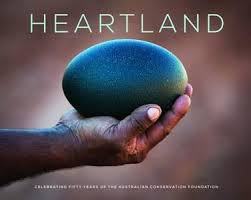 I am thrilled about the recent launch of the hard-covered, coffee-table book Heartland by the Australian Conservation Foundation, not least because an excerpt of my writing has been chosen to grace its pages!
I am thrilled about the recent launch of the hard-covered, coffee-table book Heartland by the Australian Conservation Foundation, not least because an excerpt of my writing has been chosen to grace its pages!
Heartland is an impressive, commemorative book of photography, and heartfelt expressions by Aussie writers – a glorious homage to nature. It has been published to celebrate the golden jubilee of the Australian Conservation Foundation (ACF), Australia’s oldest and largest national environmental group. Begun in 1965, it’s funded almost entirely by individual donations. CEO, Kelly O’Shanassy, says ‘The foundation is nature’s advocate and has been a part of every significant Australian environmental victory, ably assisted by the community.’
Uplifting and inspirational images capture the natural world across the continent, and people interacting with it in a myriad of ways. Stunningly beautiful, all-original photography is contributed by the MAPgroup of documentary photographers; two hundred images in all. They tell many stories. Of the profound bond between Indigenous people and country. Of our amazing plants and wildlife. Of surfing waves and rafting rivers. Of farmers’ relationship to the land, and of the deep, instinctive connection that children have with the natural world. It’s available from all good bookstores.
Heartland also has written pieces from various Australian writers (including me!) A stellar line-up features iconic authors and poets such as Patrick White, Judith Wright, Gillian Mears, Les Murray, Henry Handel Richardson, Favel Parret, Alexis Wright, Murray Bail, Christina Stead, Lee Kofman and more.
In the foreword, Australian cartoonist, poet and cultural commentator Michael Leunig writes that it’s ‘essential to our health’ that we love nature. Even better, we should understand and appreciate it deeply, enjoy it thoroughly and respect it utterly.
‘Gratitude is the appropriate way, for mother nature supports us all and provides what we need to live: the air, the food, the vital elements and the materials with which cultures are built and sustained.
If you’re wondering about the meaning of life, it’s right there before you – and inside you. It’s nature. It’s the great beautiful common cause. Know it, love it, enjoy it – and do all that you reasonably can to rescue and protect it; but don’t delay.’

Me (L), Helene Young (Middle) and Ann Lee (R)
On a different, but no less inspirational note, the RWA Writers Conference was held last weekend. Co-convened by my good friends Kate Belle and Kathryn Ledson, it featured a wide range of work-shops and sessions on the writing craft. Anita Heiss gave a sensational key-note address about courage, and the need for a diversity of voices in Australian commercial fiction. She seemed to be speaking directly to me! The conference was a great success, and raised buckets of money for the Indigenous Literary Foundation, a fabulous cause. I can’t wait for the next conference in Adelaide next year. Here’s a photo of me with fellow Penguin author Helene Young, and fiction fan extraordinaire Ann Lee. She and her friend Evelyn brought an entire trolley-load of Aussie novels to the book signing! Now it’s back to my work-in-progress, which is turning out to be the never-ending story :)

August 16, 2015
Transfer And The Balance Of Power In A Novel
 It’s the time of the month for some discussion on craft. Today, writing teacher Sydney Smith and I discuss the balance of power in a novel.
It’s the time of the month for some discussion on craft. Today, writing teacher Sydney Smith and I discuss the balance of power in a novel.
Transfer refers to the shifts in power between a protagonist and their antagonist, as each strives to get what they want. These shifts reveal themselves most clearly through dialogue, although they can happen in other ways, too.
SYDNEY:
We so expect to see transfer take place in narrative, that it stands out when it doesn’t happen. For example, when the protagonist tries to get something from their antagonist―a vital piece of information, for example―and they are defeated again and again. No transfer has taken place. Each player remains in exactly the same position in terms of power.
 Imagine James Bond is up against Schickelgruber, a man who has programmed a lethal virus that could freeze all online activity. He threatens to unleash this virus unless the world governments submit to his rule. James is sent out to defeat Schickelgruber. But each time the pair clash, Schickelgruber wins. Not only does he always win, but James has no effect whatsoever on Schickelgruber’s defences. Schickelgruber does not have to strengthen his security measures. He doesn’t have to shift the virus to a safer place. His plans don’t have to be altered one iota. That’s because there’s been no transfer.
Imagine James Bond is up against Schickelgruber, a man who has programmed a lethal virus that could freeze all online activity. He threatens to unleash this virus unless the world governments submit to his rule. James is sent out to defeat Schickelgruber. But each time the pair clash, Schickelgruber wins. Not only does he always win, but James has no effect whatsoever on Schickelgruber’s defences. Schickelgruber does not have to strengthen his security measures. He doesn’t have to shift the virus to a safer place. His plans don’t have to be altered one iota. That’s because there’s been no transfer.
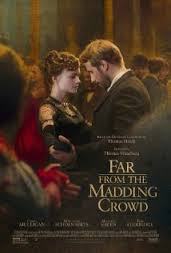 I watched Far from the Madding Crowd last week. Bathsheba Everdene rejected the marriage proposal of Gabriel Oak. At that time, he was an up-and-coming young farmer with a hundred acres of land and two hundred sheep. Bathsheba was a poor young woman with nothing but her intelligence and her education. But a reversal of fortune takes place. Gabriel loses his land and Bathsheba inherits a substantial property. He goes to work for her. When he tells her a few home truths, her vanity is offended and she fires him. But no sooner has he walked off with all his worldly possessions in a knapsack on his back, than her sheep sicken from eating too much clover. The only man who can save her flock is Gabriel, the master shepherd. She sends a minion to summon Gabriel back. The minion returns, saying Gabriel wants her to go and ask him herself. Bathsheba refuses in a huff. She isn’t stepping down from her pedestal for him!
I watched Far from the Madding Crowd last week. Bathsheba Everdene rejected the marriage proposal of Gabriel Oak. At that time, he was an up-and-coming young farmer with a hundred acres of land and two hundred sheep. Bathsheba was a poor young woman with nothing but her intelligence and her education. But a reversal of fortune takes place. Gabriel loses his land and Bathsheba inherits a substantial property. He goes to work for her. When he tells her a few home truths, her vanity is offended and she fires him. But no sooner has he walked off with all his worldly possessions in a knapsack on his back, than her sheep sicken from eating too much clover. The only man who can save her flock is Gabriel, the master shepherd. She sends a minion to summon Gabriel back. The minion returns, saying Gabriel wants her to go and ask him herself. Bathsheba refuses in a huff. She isn’t stepping down from her pedestal for him!
‘He thought you’d say that,’ says the minion. ‘He said to tell you, beggars can’t be choosers.’
In the next scene, we see Bathsheba riding to Gabriel to ask him to help her.
That is transfer. And by the way, it worked so well that the audience erupted with laughter. Transfer works best when it wins a response of some kind from the reader/viewer.
JENNY:
This is a such good topic, Sydney, partly because I’ve never thought about it before, and partly because power is always interesting. Often writers do things instinctively, but don’t understand why. It’s helpful to analyse the reasons behind what we do. So, let me think this through.
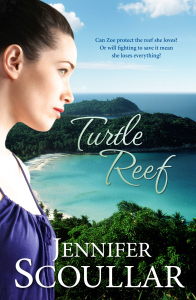 The hero should never have the power in the beginning, at least not for long. In fact stories always start with a major change in the hero’s life, so there’s an early power shift right there. The hero might decide to make a radical change. In my novel Turtle Reef, Zoe (hero) moves to take a job at the Reef Centre, putting her way outside her comfort zone. Or perhaps something outside the hero’s control catapults them into change.
The hero should never have the power in the beginning, at least not for long. In fact stories always start with a major change in the hero’s life, so there’s an early power shift right there. The hero might decide to make a radical change. In my novel Turtle Reef, Zoe (hero) moves to take a job at the Reef Centre, putting her way outside her comfort zone. Or perhaps something outside the hero’s control catapults them into change.
More and more they lose their power to the antagonist. The shifting power dynamic between hero and antagonist gives the story its dramatic tension. If the contest is too one-sided, it will be boring. It needs push and pull, feint and parry, advance and retreat.
How will I apply this to my current work-in-progress? I’ll put my Kim (my hero) through the wringer, that’s how. Put her in situations where she’s not in control. Rip the power from her, and give it to the antagonist. Make her fight to reclaim it. She’ll make mistakes, misjudge people, pursue dead ends. Snatch defeat from the jaws of victory. Struggle against her character flaw. Never realising that her antagonist is mirroring her in a kind of Machiavellian tango! I can’t wait to get writing …
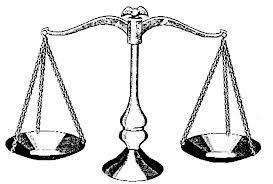 SYDNEY:
SYDNEY:
Well, yes. But Snideley (our working name for the villain of the piece) can’t have it all his own way. Transfer goes both ways. If Kim has no effect on Snideley, if Snideley doesn’t have to shift and adjust his tactics with Kim, that also means a lack of transfer.
I’ve read entire manuscripts where there is no transfer whatsoever. The protagonist ends up in the same place they started from. They have not been altered by the influence of other characters. They have not had to change their tactics in order to keep on going after what they want. And yet they must, and so must the antagonist. Without these transfers in power, the story will lack zest. It’ll resemble a lump of granite.
 If you look at the story arc for a major player in a novel, you will see a shift in power. The hero will usually go from weakness to strength. The antagonist will go from a strong power position (Goliath) to a weaker one (defeat). All that is brought about by transfer.
If you look at the story arc for a major player in a novel, you will see a shift in power. The hero will usually go from weakness to strength. The antagonist will go from a strong power position (Goliath) to a weaker one (defeat). All that is brought about by transfer.
I have often found that when the writer hasn’t grasped the importance of conflict in narrative, they will often prevent transfer from happening. The villain will be impossibly strong, the protagonist passive. A passive character can’t bring about transfer.
JENNY:
That makes sense. If Snideley is too weak, Kim won’t have to struggle and grow. If he’s too strong and always winning? Well, Kim might give up, and sink into despair. I can’t have that. My hero and antagonist need the chance to turn the tables on each other.

August 11, 2015
5 Quick Questions with Kate Belle – Convenor of the RWA “Get Fresh in 15” Program!
I am SO looking forward to the RWA Conference this year, to be held in my home state of Victoria. It’s thanks to an earlier such conference that I got my big publishing break. This year promises to be bigger, bolder and more inclusive than ever. The conference will be held in partnership with the famous Melbourne Writers Festival. My good mate and conference convener, Kate Belle, has a chat to Anita Heiss, one of the fabulous speakers on offer.
 Originally posted on Anita Heiss:
Originally posted on Anita Heiss:
 This year’s Romance Writers of Australia Conference looks set to be an extraordinary affair. I can’t wait to be part of it. So much so I have invited the conference convenor Kate Belle to answer some questions for me on what will make it so spectacular.
This year’s Romance Writers of Australia Conference looks set to be an extraordinary affair. I can’t wait to be part of it. So much so I have invited the conference convenor Kate Belle to answer some questions for me on what will make it so spectacular.
Kate Belle is an established writer whose first full-length novel, The Yearning, was published in April 2013 by Simon & Schuster to rave reviews, while her second novel, Being Jade, has readers begging for more.
Kate is also the creator of The Ecstasy Files blog on relationships, sexuality and erotic writing. and teacher of Eros in Action: write convincing sex & Romancing the Page: romance novel writing.
The fact that she is an author puts her in good stead to convene this professional conference, for authors, just like me!
So, five quick questions with Kate:
The theme of the conference is ‘Get Fresh…
View original 582 more words

5 Quick Questions with Kate Belle – Convenor of the RWA “Get Fresh in 15″ Program!
I am SO looking forward to the RWA Conference this year, to be held in my home state of Victoria. It’s thanks to an earlier such conference that I got my big publishing break. This year promises to be bigger, bolder and more inclusive than ever. The conference will be held in partnership with the famous Melbourne Writers Festival. My good mate and conference convener, Kate Belle, has a chat to Anita Heiss, one of the fabulous speakers on offer.
 Originally posted on Anita Heiss:
Originally posted on Anita Heiss:
 This year’s Romance Writers of Australia Conference looks set to be an extraordinary affair. I can’t wait to be part of it. So much so I have invited the conference convenor Kate Belle to answer some questions for me on what will make it so spectacular.
This year’s Romance Writers of Australia Conference looks set to be an extraordinary affair. I can’t wait to be part of it. So much so I have invited the conference convenor Kate Belle to answer some questions for me on what will make it so spectacular.
Kate Belle is an established writer whose first full-length novel, The Yearning, was published in April 2013 by Simon & Schuster to rave reviews, while her second novel, Being Jade, has readers begging for more.
Kate is also the creator of The Ecstasy Files blog on relationships, sexuality and erotic writing. and teacher of Eros in Action: write convincing sex & Romancing the Page: romance novel writing.
The fact that she is an author puts her in good stead to convene this professional conference, for authors, just like me!
So, five quick questions with Kate:
The theme of the conference is ‘Get Fresh…
View original 582 more words

August 9, 2015
For The Love Of Horses
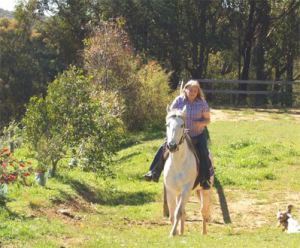
Sheba
A passion for horses has always been a part of me. I’ve owned them (as much as anybody can ever really own a horse), dreamed of them, played with them, ridden them and loved them all my life. I’m not alone in this. Not the only little girl to draw nothing but horses, filling reams of paper with bays, blacks and greys, as if sketching them might conjure them into reality. Not the only child to go everywhere at a walk, trot or canter, and write poems and love letters to favourite ponies. But for some, this intense horsiness is a passing phase. At around fifteen or sixteen, a lot of my friends discovered boys, and began scrawling the name of their latest crush on their exercise books, instead of the name of their dream horse. Not me. If anything, my passion for horses grew stronger as I grew older.
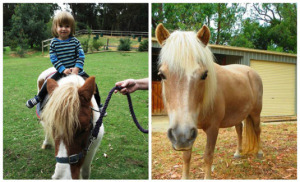
Candy and Young Rider
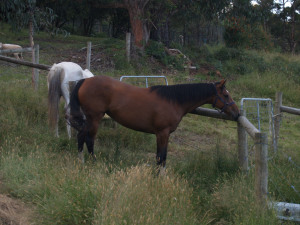
Starfire
What is it, I wonder, that makes horses such powerful figures in the lives of many women? Why is there such a natural affinity? I think it’s because horses are both mystical and intensely physical. I like how they ground me, link me to the natural world, to the wind, rain and sun. Riding requires me to understand and respect my own body. It doesn’t matter how much I weigh, or what I look like, or how old I am. All that matters is how my body can best work with my horse.
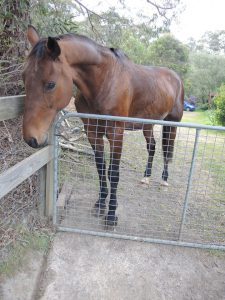
Lofty
Yet the sweat and straining muscles of a pounding gallop, also has a spiritual side. I’m at one with the universe. My focus turns inward. My senses heighten in a kind of meditation. I stop thinking about bills, and car services and deadlines. I see and hear what my horse does: the flash of a wallaby hide through the trees, the liquid song of a butcher bird, the rise and fall of the trail ahead.
I’ve been blessed to share my life with many fabulous horses, but you don’t need to own or ride one to feel this special connection. I get a tingle from seeing a horse in a painting, or a photo or just reading about them. When I started writing, I learned that horses also inspire creativity. Their mystery and beauty fires my imagination, taking it from limitation to freedom. ‘Since the dawn of civilisation, the horse and the Muses have been companions in all the heroics of mythology and history.’ – Robert Frothingham. There isn’t a book I’ve written that doesn’t involve horses to one degree or another. For me, horses embody sensuality, power, beauty, trust and freedom. What’s not to love?





